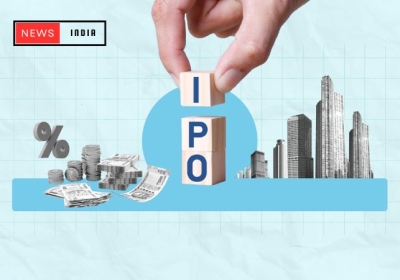Global Concerns Over Rising Food Prices
India GDP: Amid Global Economic Recovery, India Shines Bright, Yet Government Worries Mount Over Food Inflation
In the Monthly Economic Review, it's noted that both the RBI and IMF have revised their growth rate forecasts for India upwards, signaling a positive outlook. The RBI anticipates a 7% GDP growth rate for the fiscal year 2024-25. This upward revision reflects growing confidence in India's economic recovery amidst the global landscape. However, concerns persist regarding food inflation, which has raised alarms within the government. Despite the overall optimistic outlook, addressing inflationary pressures, particularly in essential commodities like food, remains a priority for policymakers. The government is likely to implement measures aimed at stabilizing prices and ensuring economic resilience in the face of inflationary challenges while continuing to support growth momentum through strategic policies and initiatives.
Monthly Economic Assessment: The Ministry of Finance has issued the Monthly Economic Review for March 2024, highlighting India's emergence as a bright spot in the global economic recovery. Strong domestic demand, rural enhancements, increased investments, and a thriving manufacturing sector have fueled India's economic growth. However, the report also underscores a significant concern for the government: the sharp rise in food inflation. While the Indian economy is experiencing strong momentum, tackling food inflation remains a significant challenge for policymakers, which is essential for maintaining stability and sustained progress.
RBI and IMF Raise GDP Estimates:
The Ministry of Finance's Department of Economic Affairs releases a Monthly Economic Review regularly. According to the latest report, both the Reserve Bank of India (RBI) and the International Monetary Fund (IMF) have revised their forecasts for India's GDP growth rate upward, expressing optimism. During its recent MPC meeting, the RBI predicted a 7% GDP growth rate for the fiscal year 2024-25. The report also highlights the historic performance of the stock market in March 2024, with the BSE Sensex and NSE Nifty reaching unprecedented highs. Moreover, there has been notable growth in goods and services collection, along with robust expansion in the manufacturing and services sectors, indicating the strength of the domestic economy. Increased confidence among consumers and investors reflects India's resilience in addressing global challenges.
After COVID, Decrease in Inflation:
As per the Monthly Economic Review, it has been stated that post the COVID pandemic, consumer inflation has declined to lower levels. The government has effectively managed to curb consumer inflation during the fiscal year 2023-24. The consumer inflation rate, which stood at 6.7% in the fiscal year 2022-23, decreased to 5.4% in 2023-24, falling below the upper level of the RBI's tolerance band. The government's positive steps to reduce the prices of petrol, diesel, and cooking gas have contributed to controlling inflation.
Food Inflation Raises Government Concerns:
The Ministry of Finance has expressed worry over food inflation in India, which decreased from 8.7% in February 2024 to 8.5% in March 2024. This rise, attributed to soaring prices of vegetables and pulses, presents a significant challenge for the government. Despite this, the government has implemented various measures to combat the issue, including bolstering buffer stocks of essential food items, regulating their release into the market, easing import procedures, imposing strict stock limits to prevent hoarding, and enhancing supply through retail channels. Additionally, the Ministry noted the Meteorological Department's prediction of above-average rainfall, potentially boosting food production and aiding in controlling food inflation.
Global Worries Due to Rising Food Prices:
The Ministry of Finance has highlighted the global challenge posed by soaring food inflation. Major economies like Germany, Italy, South Africa, France, and the United Kingdom are experiencing high food prices. Tackling this issue demands concerted global action.
In conclusion, food inflation is a significant concern not only for India but also for economies worldwide. The Ministry of Finance's acknowledgment of this challenge underscores the need for coordinated efforts at both national and global levels to address rising food prices effectively. As countries continue to grapple with the economic repercussions of the COVID-19 pandemic, finding sustainable solutions to curb food inflation remains paramount for ensuring food security and financial stability for all.
-
RBI Imposes Restrictions on Kotak Mahindra Bank: Ban on New Customer Acquisition and Credit Card Issuance
-
India Challenges ILO Report Claiming 83% of Youth Unemployment
-
Google's Response: Termination of 28 Employees
-
Reliance Industries' Milestone: Pre-Tax Profit Surpasses Rs 1 Lakh Crore
-
Market Snapshot: Mixed Performance as Gainers and Losers Emerge


.png)



.png)